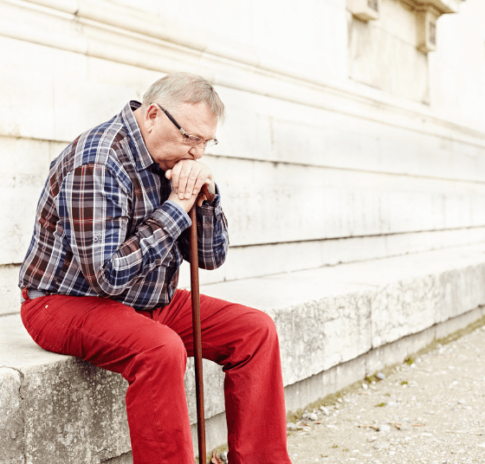Self-neglect among the elderly is a growing problem that commonly goes unreported. We interviewed Nurse Beckie with FirstLight Home Care to learn more about this trend and how to prevent it.
What is senior self-neglect?
Senior self-neglect is when an elderly person is no longer able to meet his or her basic daily needs, which can result in serious health and safety concerns. The Aging Life Care Association has found that self-neglect among seniors is a more common form of non-financial neglect encountered by most caregivers.
“When it is self-neglect and the senior is not able to take care of themselves, it is considered a form of elder abuse. This can happen when the senior lives alone and no one is there to help them,” said Nurse Beckie.
What are the warning signs of senior self-neglect?
- Poor personal hygiene, including not bathing and not taking care of hair, nails, etc.
- Lack of food in the house or expired food being saved.
- Obvious signs of weight loss.
- Poor medication management or refusing to take medications altogether.
- Disengaging from friends and family, not wanting to do go out of the house and not being social. This can lead to loneliness or isolation.
- Unpaid bills bounced checks, or utilities being shut off.
- Dangerous habits, such as leaving the stove on or the front door unlocked.
What should you do if you suspect self-neglect in happening with your senior loved one?
Unfortunately, many seniors in this situation don’t want to accept help from anyone. They believe they’re fine and that there’s nothing wrong. Before you do anything, evaluate the situation carefully.
If you decide to step in, expect some resistance. Many seniors want to maintain their independence and will resent even well-meaning involvement in their day-to-day life activities. It’s important to respect your loved one’s sense of self-determination. They may not appreciate the role reversal when a child tries to parent them!
“It’s not easy to tell an elderly loved one that they’re not taking proper care of themselves. But it’s best to approach the topic and talk to them as soon as you think there may be something wrong. Be sensitive to how they are feeling, but also let them know that you are worried and that you want to help,” suggests Nurse Beckie.
The best solution for your loved one could be to hire a local professional in-home caregiver.
Your loved one might balk at first, but most seniors quickly realize they prefer receiving assistance from a professional rather than from a family member. It preserves their dignity and they see that life is much better with an extra pair of hands.
Other trending topics on our blog:
Avoid These 5 Mistakes When Caring for your Aging Parents
Should your Elderly Parents Live at Home Alone?
Five Tips to Effectively Communicate with Seniors
Rebecca Rushing, BSN, RN, is the Director of Client Care Services for FirstLight Home Care. Nurse Beckie is a certified dementia practitioner, an Ageless Grace brain health educator and has been trained in Teepa Snow’s “Positive Approach to Care.” Beckie has more than 30 years of nursing experience and a passion for the well-being of seniors.
